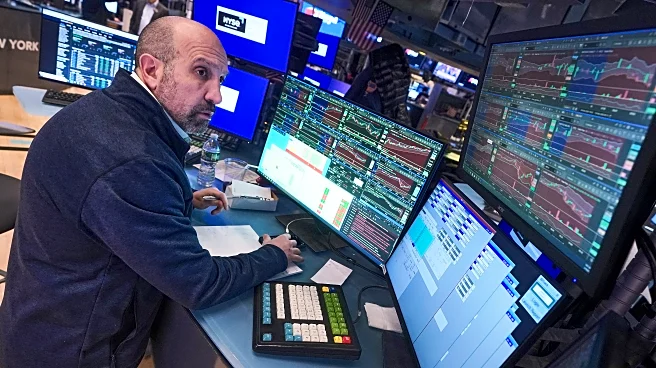Rapid Read • 8 min read
Dr. Jerome Adams, former U.S. Surgeon General during President Trump's administration, appeared on 'Face the Nation' to discuss the recent shooting at CDC buildings in Atlanta. The suspect reportedly believed he was sick due to the COVID vaccine, leading to the attack. Dr. Adams expressed condolences for Officer David Rose, who died in the incident, and criticized Health and Human Services Secretary Kennedy for his delayed and insufficient response. Adams highlighted the importance of condemning violence and criticized Kennedy's past rhetoric, which he believes has contributed to hostility against health officials.
AD
The incident underscores ongoing tensions surrounding public health measures and vaccine skepticism in the U.S. Dr. Adams' criticism of Secretary Kennedy points to a broader issue of leadership in health policy, especially in crisis situations. The delayed response from the HHS Secretary may affect public trust in health institutions and their ability to protect workers. The situation also highlights the need for clear communication and support from government leaders to prevent violence and ensure the safety of health professionals.
The aftermath of the CDC shooting may prompt further scrutiny of Secretary Kennedy's leadership and rhetoric. There could be calls for more robust security measures at health facilities and a reevaluation of communication strategies to address public concerns about vaccines. Political leaders and health officials may need to engage in dialogue to restore trust and prevent future incidents. The focus may also shift to how health policies are communicated to the public, especially regarding vaccine safety and efficacy.
The shooting incident at the CDC reflects deeper societal issues, including vaccine misinformation and distrust in health authorities. It raises ethical questions about the responsibility of public figures to use their platforms responsibly and the impact of their words on public sentiment. The event may lead to discussions on how to balance free speech with the need to prevent harm and protect public health workers from violence.
AD
More Stories You Might Enjoy












